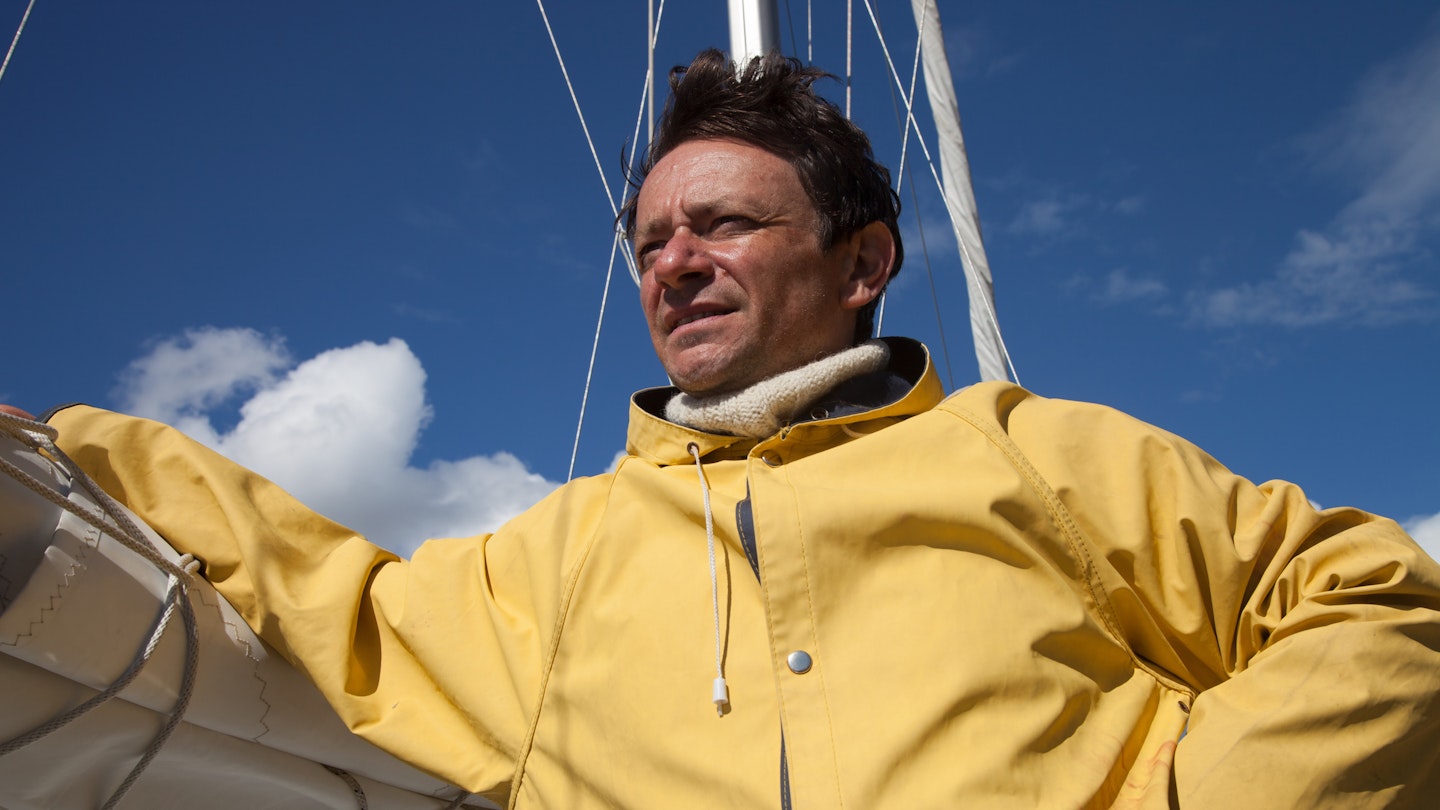Following hot on the heels of The Mercy, Crowhurst is this year’s other Donald Crowhurst movie: directed by Simon Rumley, produced by Michael Riley, and starring Justin Salinger as the beleaguered mariner.
The bones of the story, as you might expect, remain the same. In 1968, amateur yachtsman Donald Crowhurst entered a Sunday Times-sponsored round-the-world yacht race, in which competitors would single-handedly circumnavigate the world’s oceans. Realising he had no hope of winning (or perhaps even of surviving), he decided to fake the whole enterprise to save face and protect his investments: planning to appear to come in last, but at least to have completed the arduous journey. Circumstances, however, conspired to make him appear the winner, meaning his logbooks would be carefully scrutinised. As his situation grew more untenable, his unlikely story spiralled into mental breakdown and tragedy.
Crowhurst itself is, dare we say, the more "arthouse" of the competing films. Freed from mainstream considerations to take the story in weirder directions, Rumley’s approach descends inexorably into a devastating portrait of a fractured psyche, playing tricks with time, sound design and psychedelic split-screen effects. You might call it "Roegian", and that would be appropriate, since Nicolas Roeg – who himself planned but never realised a Crowhurst film in the 1970s – serves as executive producer.
During shooting, which actually took place at Crowhurst’s former home in Bridgwater, Somerset (as well as, obviously, on the water), Empire sat down with Rumley and Riley for the full story.
The following contains details that might be construed as spoilers.
What was Nicolas Roeg’s involvement with Crowhurst?
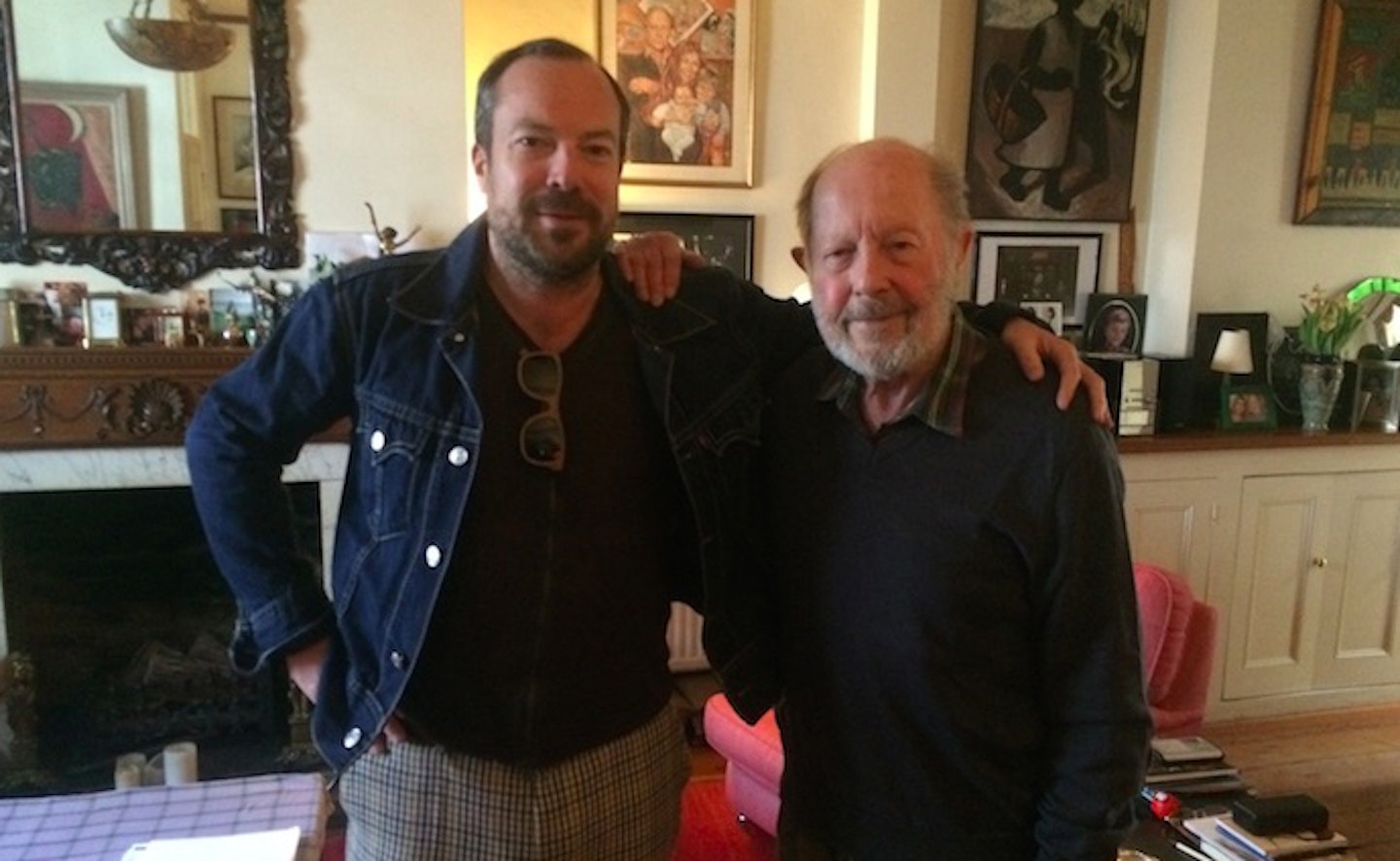
Michael Riley: Nic had actually been commissioned not long after The Man Who Fell To Earth, by the same producer, to make a Donald Crowhurst film. He wrote it, but I think the feeling was that it was too "English" for the American studio to pick it up and run with it, so it never happened. I was developing something else with Nic at the same time I was first working on this, and I knew he had been involved with that previous attempt to do a Crowhurst film, so I thought it was too good a coincidence to ignore. Nic doesn’t actually believe in coincidences. He thinks it’s all fate. He’s a poet at heart. He fell on this, and thought it was a perfect opportunity. He made suggestions on the script and mentored Simon a bit.
Simon Rumley: He read the script and loved the fractured element of it. I’m his biggest fan, and I think what he does with the structuring of time and so on is incredible. I don’t think cinema has ever been more exciting. I’ve tried and failed miserably at times in the past to do things influenced by him, so it was so lovely to have him on board. Before I met him re-watched Walkabout and Performance and Castaway and Bad Timing, and it made me remember how exciting watching his films is. We’re not quite as hardcore, but there are elements of his style, and in the edit we’ll try to implement a few more of those flourishes.
How long has Crowhurst been developing?
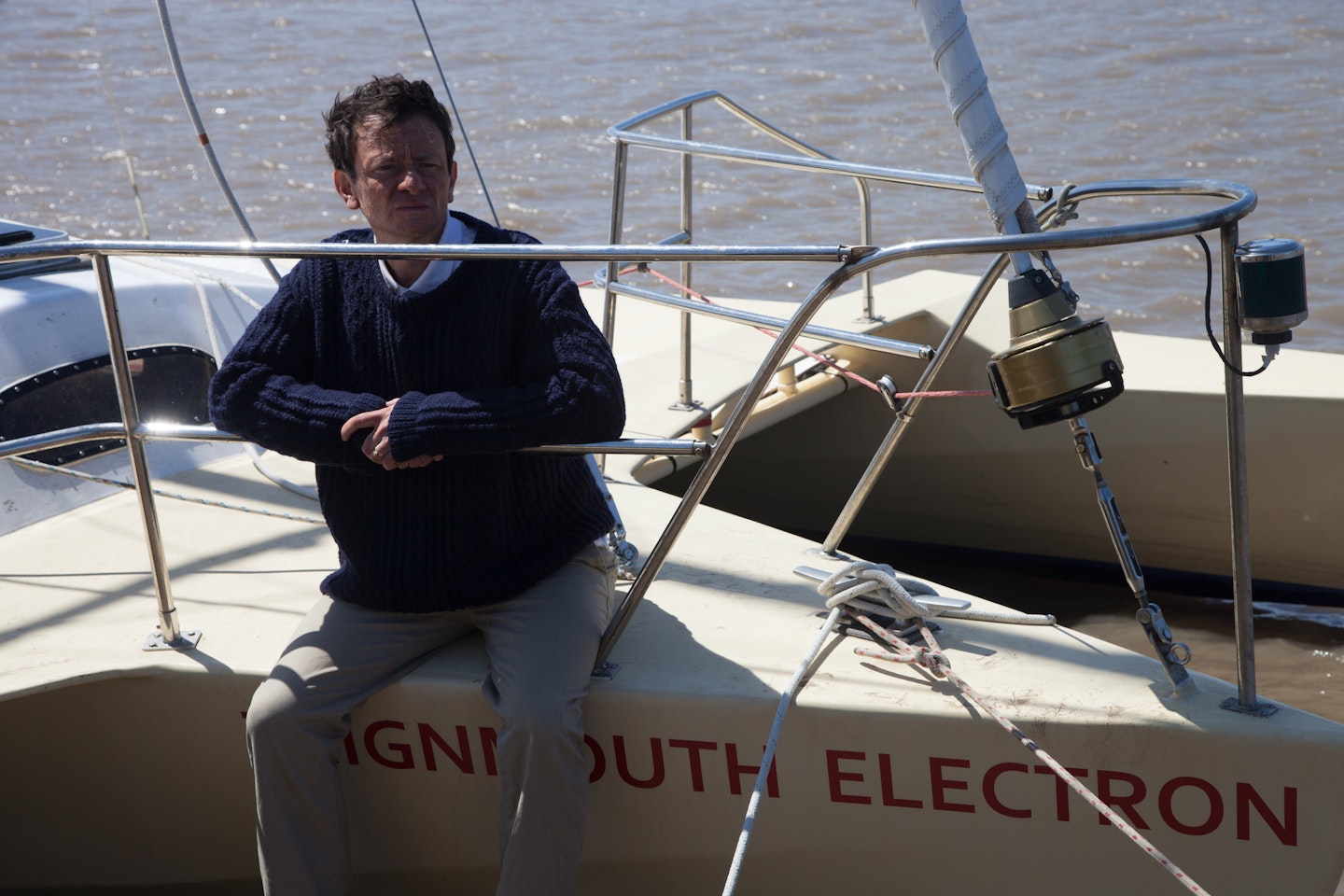
Rumley: I was in Cannes in 2014, having just got back from shooting a film in Louisiana, and I got this email from Mike saying, "Are you around over the summer?" We had a quick chat, and it didn’t quite work out at that point. Mike went off and did another film, but then it all came back at about the end of February, 2015. That’s when I started looking at Andy Briggs’ script and re-writing. As someone who often produces his own stuff, it’s so nice to have someone else tell you the money’s in place and offer you the job, rather than spend five years plugging away yourself. When I turned it down I regretted it a bit, especially as the thing I was going to do instead didn’t work out. So I’m very pleased that it came back.
Riley: It was good that we had that initial chat when it was in a different form, because it made me confident that Simon understood the story and connected with the characters and was the man to tell the story in the best way. I met a lot of other directors who considered it an action film. You could read it like that... But it’s basically a man alone with his inner demons.
So what was that different earlier form?
Rumley: It was a bigger-budget film, essentially. This version leans in more towards the story’s absurdist angles. We embraced that very much, especially towards the end when we get into the breakdown and the horror.
Riley: The original script was less about Donald’s isolation. I wanted to see him alone, dealing with these duplicities that he’s created for himself, and also the detail of what it’s like to be at sea. When we hear stories about Ellen Macarthur or Robin Knox Johnson sailing round the world, those details tend to get glossed over. I wanted the small moments. We got a lot of stuff from local archives around here, and a lot of it is just Crowhurst, sitting, looking at flat sea with a beer in his hand. Weeks and weeks on end of that have got to take their toll.
How do you deal with a single character alone on a boat for huge chunks of time?
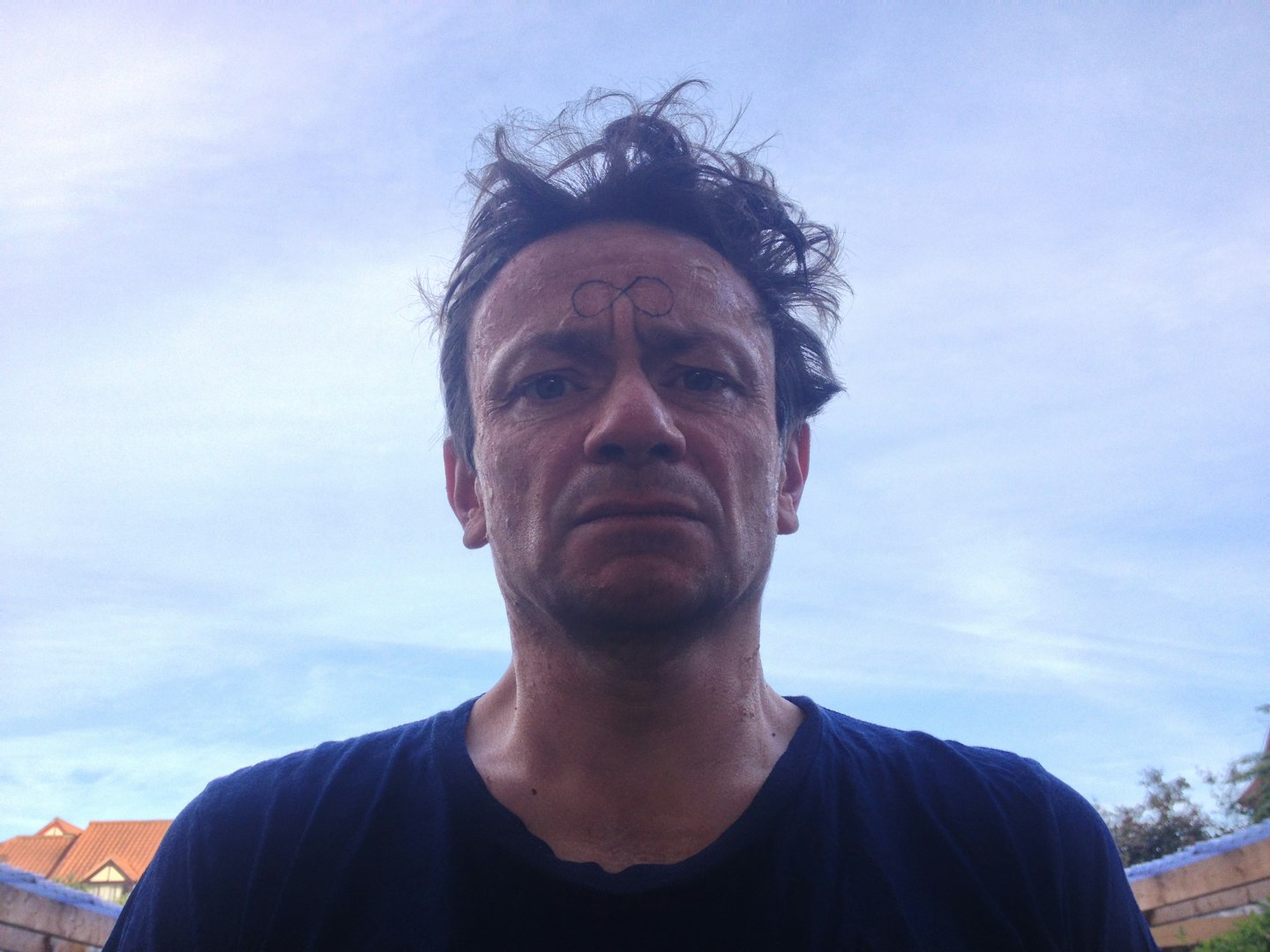
Rumley: We did try a voiceover for a time, but I decided ultimately that that was a lazy, cop-out option. The first ten or fifteen minutes of him at sea is sort of like Solzhenitsyn’s One Day In The Life Of Ivan Denisovich: we see him wake up, brush his teeth, cook his breakfast, go outside, pull a few ropes, take some readings... There’s basically fifteen minutes of him just doing what you would do on a boat. Once we’ve established that, we know him and his journey a lot better.
Every so often we cut back to land, to his PR agent or his family. We were all very cognisant of the fact that we didn’t just want one man at sea by himself. That film’s been made a few times already, not least with Robert Redford. One of our mottos on this film has been "All Is Not Lost"! There were eight competitors, so every time a competitor falls out of the race, we go to them looking heroic, with a boat hull or some masts behind them, and a news reporter essentially giving a quick bio and saying why they dropped out of the race. And every time we go back to one of them we’re reminded of how difficult this race actually is. Two sailors even drop out of the race before Donald has even left. He’s like, "This is great! I haven’t even left home and I’ve gone from 9th to 7th place!" That very much sums up his naive, if not deluded, optimism. And we know he can’t come first, because that would screw him, so each time another person drops out, it’s another tightening of the screws of inevitability.
Another technique we've used, which I’m very excited about and haven’t used before, is actually very much borrowed from Magnolia. Every so often, when Donald’s in a slump, or when it’s Christmas time or something, we go to x-amount of the cast members singing. We’ve got Silent Night, Land of Hope and Glory, Jerusalem, the National Anthem and I Vow To Thee My Country. So every so often we cut to various members of the cast, including Donald, singing these things as morale boosters, and as memories of the British Empire. They’re such classic songs that most generations have grown up with, and there’s something very tragic about this guy being alone on a boat singing or hearing these songs. As the film goes along they also emphasise his isolation. We start off with twelve characters, then we only have ten, and then eventually the final song is just him.
How have you dealt with the mystery of what actually happened to him ultimately? We can all assume how the story ended, but we don’t know exactly.
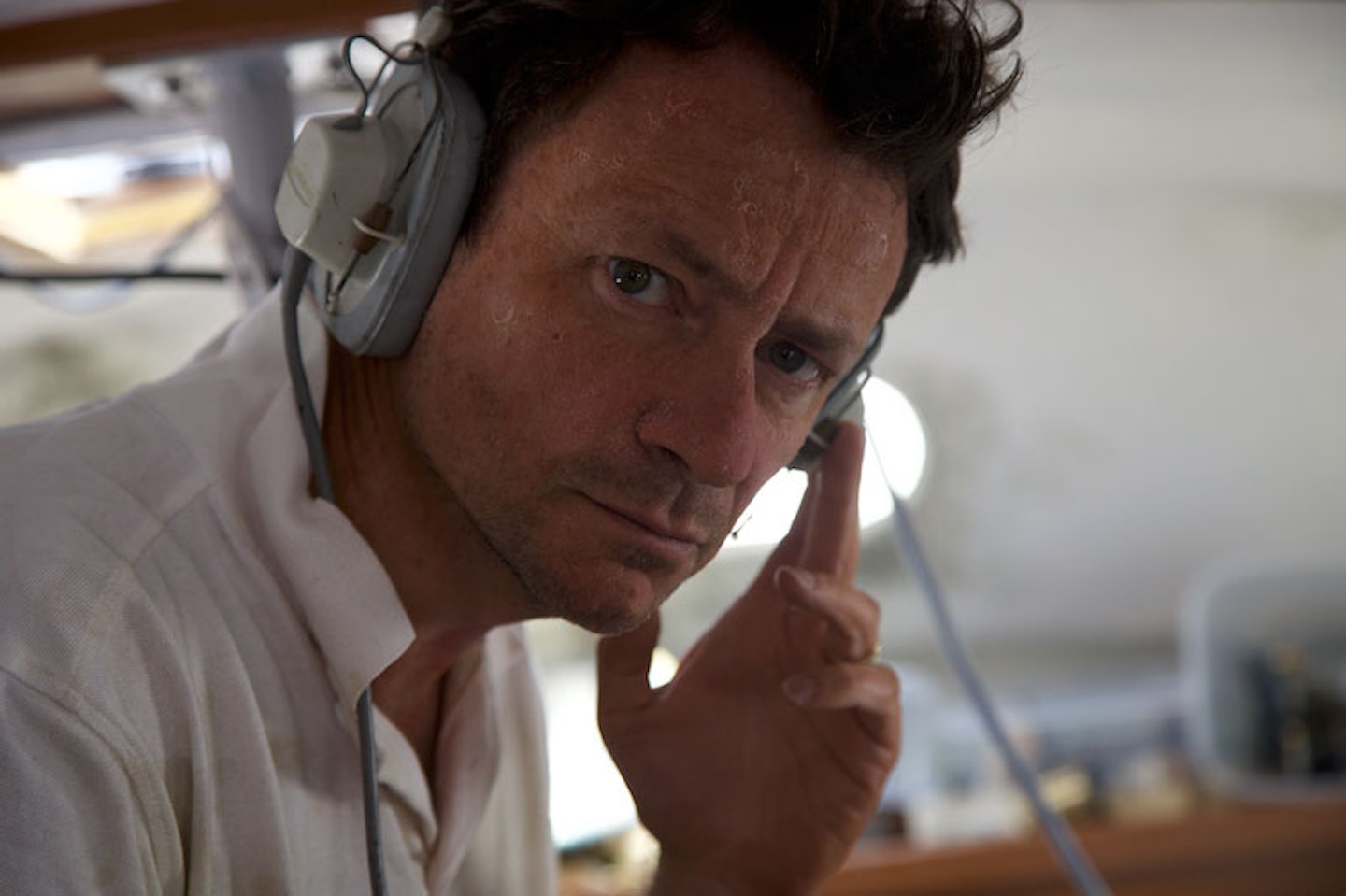
Riley: You’re right. Nobody knows the ending: that’s the thing. We make rational guesses based on the probabilities, but we don’t know. Andy’s original draft of the script showed Donald toppling into the water, but we took that out, and we’ve actually got suggestions of there being two other endings in this. The obvious ending is that he killed himself. The less obvious one, but there are people that still believe it, is that he made friends in South America and managed to disappear there (Crowhurst, in real life, went ashore in Argentina for boat repairs during the race). He’s now a chicken farmer in the suburbs of Brazil or something. The least likely one, but the one that struck me when I saw the documentary and started reading his logs (in which the increasingly unhinged Crowhurst begins talking about being transformed into something beyond human), is that he really did become a cosmic being. I’m an atheist through and through, but I like the option of having that ending. So there’s a sequence in this film that kind of suggests it. There’s a "maybe" there.
Rumley: That’s the wonderful thing about adopting this more Roegian approach. We were able to slip a couple of shots in of him waving goodbye with an Argentinian woman... and it doesn’t definitively mean anything, but it suggests a possible reading. It’s that kind of liberation of cinema, away from traditional structure, that allows us to do a lot more than a standard three-act thing. This is the perfect story for that. Not every story lends itself to that kind of technique, but this one does. The pieces to camera are all taken from Donald’s real logbooks. There’s some pretty crazy writing in there.
We’re in the house Crowhurst genuinely lived in. Is the rest of the film as accurate as this in its physical details? Did you build a replica of his trimaran?
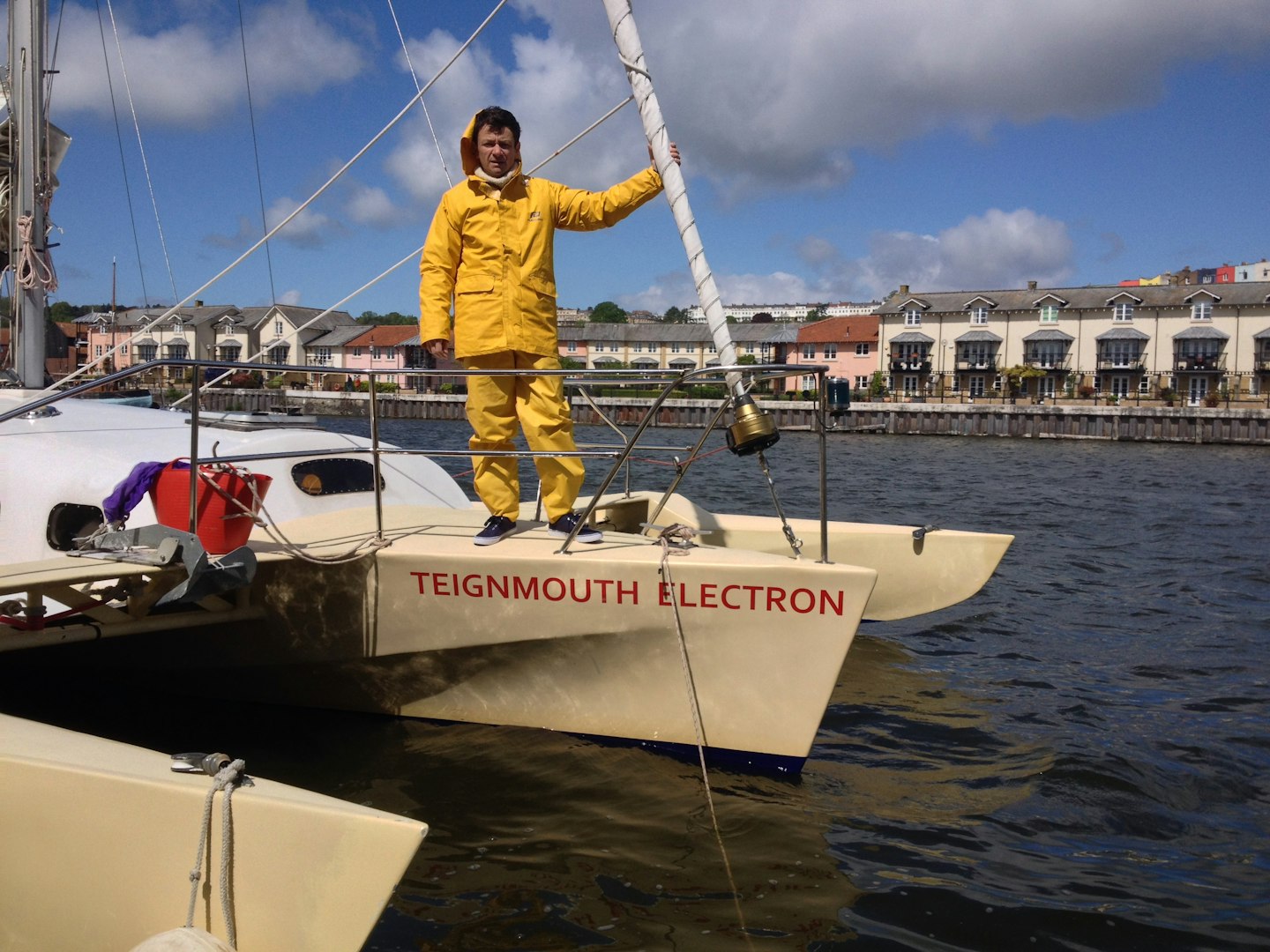
Rumley: That was the original idea, but Mike ended up finding one from 1969. It’s not quite like Donald’s. If you’re a maritime nerd you’d know the difference, but for the average audience it works fine. Donald had this thing called a mizzen, which is a sail at the back. His boat was also all made of wood, and his cockpit was a bit flatter. Ours has got a main mast and two jibs up front, and it’s fibreglass. But inside we got our production designer to recreate the cabin pretty much exactly. We’ve made it as close to accurate as possible given the budget.
Has filming on the water been difficult?
Rumley: I haven’t filmed on the water before. I’ve shot with animals and children, but not this. We had to work in force 7 and 8 winds – we were filming at 7, we stopped at 8 – and I was the only member of the crew that didn’t throw up. It’s been exciting actually. In terms of films on boats, from Kathryn Bigelow to Steven Spielberg to Wolfgang Petersen, it’s a nice group to join really. But it’s also a complete nightmare. Everything you read about filming on boats is absolutely true. We did four days and did fairly well, I think, all things considered.
Riley: The reason we could do this film on a lower budget was that it isn’t like A Perfect Storm or Titanic or All Is Lost where there are huge storms. Because he never actually sailed around the Cape Of Good Hope. Becalming was his major problem. Filming the real journey of any of the other sailors would have been a lot tougher on our budget.
When did you become aware of The Mercy?
Riley: Oh, very early on, and knowing about it actually encouraged us to push ahead. It didn’t kill us; it made us stronger! Like I said, I don’t think this story necessarily needs a lot of money thrown at it. It just needs a good actor and a brave director. This story is extremely intense and probably not very mainstream. It’s about a guy who cheats and goes mental and basically kills himself. That’s not The King’s Speech. It’s not a commercial proposition. So I’d say that ours is the less conservative version. We could afford to take risks. Simon can keep shots going for minutes, on Donald just in his cabin, doing nothing. We can take those stylistic chances. It’s like Black Rebel Motorcycle Club covering your favourite record, rather than Dire Straits. I mean, I don’t want to draw too many comparisons between the two films. Except to say that ours is ten times better!
Crowhurst is released in the UK on 23 March.
